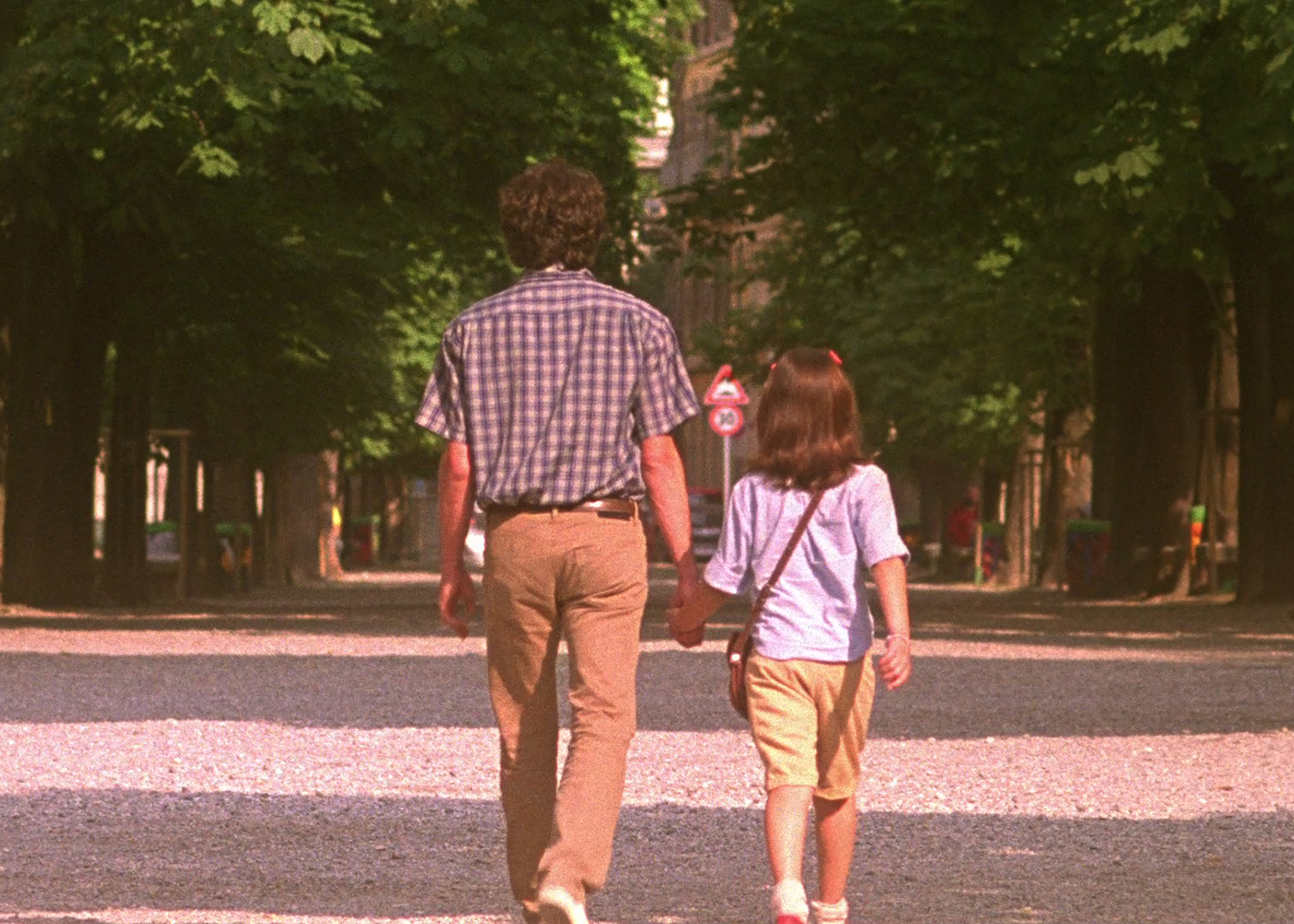I Fenicotteri is a delicate, subtle film, one of great beauty which relies wholly on subtext to make itself understood. This can be challenging for an audience for sure—we are lead cheerleaders for the mantra of “Shorter! Tighter! Grab your audience immediately!”— but Francesca Coppola’s adeptness at non-verbal communication is so striking that the plot of the film never feels aimless, instead it progresses with cascading certainty and dread.
A period piece, set in 1989, the film is of a small family; a couple with a young daughter and another baby on the way. The man appears strangely apathetic, the mother stressed out, the daughter oblivious. A background radio broadcast establishes that the Berlin Wall had just fallen. It is a stray detail which does not really figure into the plot, however one soon comes to appreciate that there are no small details in this film, as they all cleverly advance an atmosphere of inevitably, foreshadowing the conclusion.
It is father/daughter day, and they soon rouse to visit the park. They see animals and take rides on various attractions. Through it all the detachment of the father is palpable, yet protected in her cocoon of youth, the daughter scarce notices. Explicitly we are never told what is going on in his interior world, however the elements of film: the edit, the photography, the acting, all serve to illuminate, and highlight the subconscious anxiety of the daughter. The middle third of the film, taking place at the park, is bookended by two rides, both shot in handheld. They draw attention to themselves as being the rare non-static sequences in the film. The first is a train ride they both take. Seeped in nostalgia, which is of course aided by the film’s distinctive coloring, the daughter is open to the world, hyper-attuned to it, in the way that a formative memory might be. The second sequence, is on a merry-go-round, the daughter by herself. As she cycles, she attempts to maintain eye contact with her dad, waving and drawing attention. For a panicked moment she loses him though, and fears he’s left. Some part of her subconscious understands what’s taking place, and the terror of abandonment, of missing her daddy, is allowed to surface. When researching this post, it astonished me to find that Ms. Coppola’s Tumblr is titled “The Most Beautiful Man in the World”. That happens to be the title of one of my favorite short films, and the similarity between the two will not allow me to believe it is coincidence. Both films center upon a young girl and an older man, they both rely on slow observational atmospherics to tell their story, and both films strive to silently communicate hidden truths. A bit of challenge perhaps, but films like this impart the pleasure of a great twist short, with their “gotcha” moments, but are even more satisfying—you have to decode them yourself.

 Jason Sondhi
Jason Sondhi